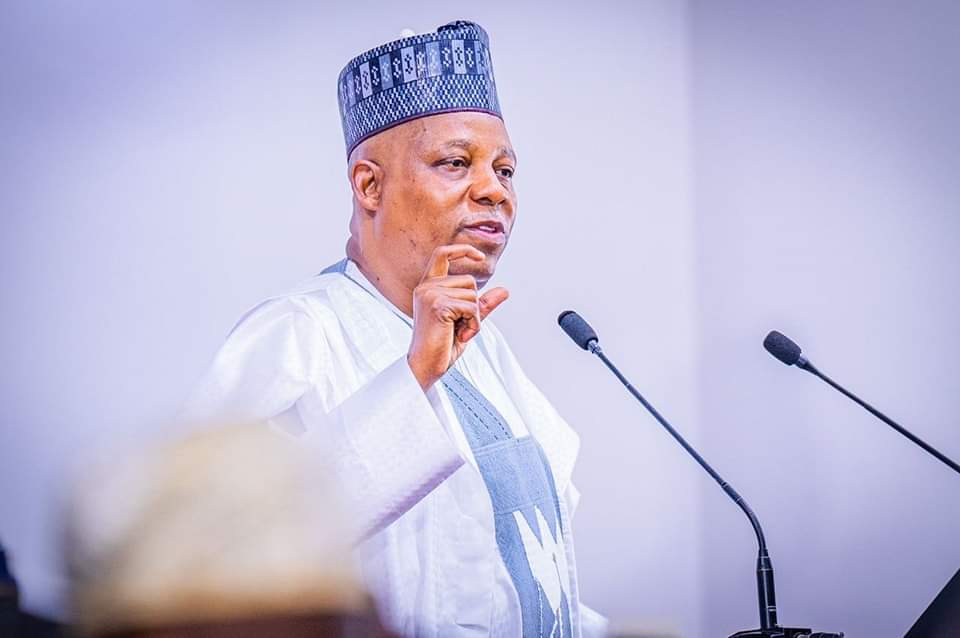- Vice President Kashim Shettima stressed the critical importance of the success of the African Continental Free Trade Area (AfCFTA) during a World Economic Forum event
- Shettima highlighted the potential of AfCFTA to boost intra-Africa trade and elevate GDP and urged swift resolutions to remaining impediments
Vice President Kashim Shettima emphasized the critical importance of ensuring the success of the African Continental Free Trade Area (AfCFTA). Speaking at a breakfast event during the World Economic Forum in Davos, Switzerland, Shettima underscored the compelling reasons behind safeguarding the agreement.
Highlighting the need to boost intra-Africa trade, which is currently standing at 15%, Shettima outlined the potential of AfCFTA to elevate the continent’s GDP. He expressed optimism about the trade agreement’s role in galvanizing GDP growth, citing World Bank projections that indicate a potential increase of $450 billion in Africa’s GDP by 2035, accompanied by an 81% surge in exports.
“African trade is poised to see a remarkable 52.3% boost by 2025. We must aim higher and consider the trillions of dollars involved. African nations should swiftly address any remaining agreements and impediments to ensure seamless and free trade,” Shettima urged.
The Vice President proposed optimizing and prioritizing information sharing with private sector players to achieve these ambitious objectives. He emphasized that while governments facilitate, trade is fundamentally a private sector imperative.
Acknowledging the challenges faced in negotiations, Shettima stressed the urgency for speed and cohesion among African countries. He noted the need to overcome clashes between national and continental priorities, emphasizing that the success of AfCFTA is paramount in today’s global landscape.
“The idea of AfCFTA must not fail, and there is no room for mediocrity in today’s world,” emphasized Shettima, drawing attention to the slow pace of negotiations and the limited number of consummated deals between countries since January 2021.
Drawing inspiration from successful trade unions in Europe, the Americas, and Asia, Shettima highlighted the transformation of intra-Africa trade from 7% a decade ago to the current 15%. He concluded by stating that African trade must no longer be externalized, urging a collective commitment to realizing the full potential of AfCFTA.

